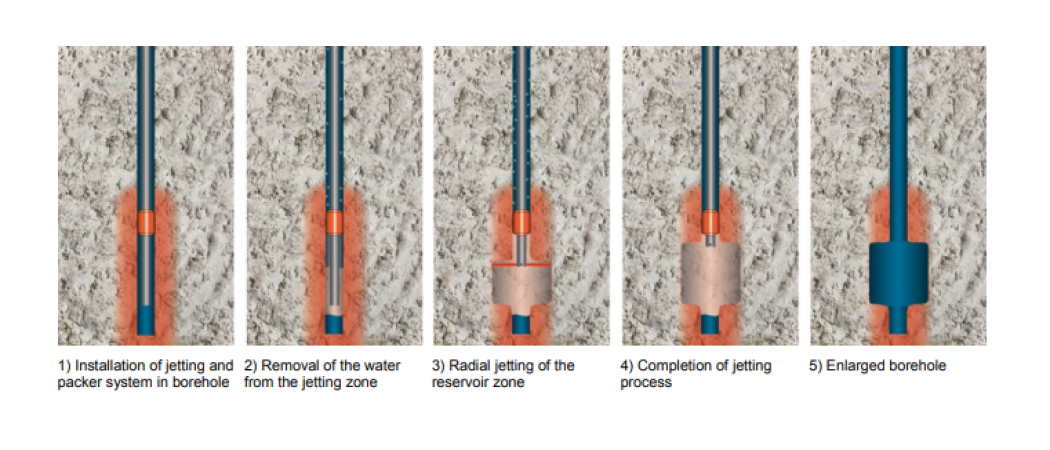
A patent-pending technology developed at ETH Zurich could make for more efficient fracture networks in deep gas, oil and geothermal wells.
Thermal borehole enlargement through thermal spallation can be used to bore deep wells for gas, oil or geothermal exploitation in hard rock. It could also boost the efficiency of new wells and recovery of abandoned wells.
The shape of the borehole can be optimised in order to enhance the subsequent stimulation process.
The creation of deep reservoirs for gas, oil and geothermal energy extraction is impeded by insufficient stimulation. Direction and extension of the created fractures are complex to control and, therefore, large stimulated and interconnected fracture networks are difficult to create.
In order to reduce the project failure risks and increase the reservoir productivity, we developed a technology to control the creation of engineered reservoirs in hard deep rocks.
Thermal borehole enlargement is a technique, which locally increases the well diameter by utilizing the thermal spallation process to excavate rock on the sidewalls of an existing borehole. One or multiple nozzles are placed at the circumference of a burner assembly, creating a hot jet of combustion gases.
When this hot jet impinges on the rock, high thermal stresses are induced, which lead to the disintegration of the rock surface. An adaptable packer system avoids water penetration during the jetting process and regulates the pressure in the jetting zone.
The prototype was successfully tested at the Grimsel Test Site.
Features & Benefits
- Wide range of defined borehole enlargement geometries (e.g. notches, discs, slots ...)
- Optimized fracture propagation in hydraulic stimulation phase
- Reduced fluid pressure to initiate fracturing process
- Increased productivity of the well by additionally reducing the project failure risk
Fields of Application
- Any deep well for gas, oil or geothermal exploitation in hard rock
- Boosting the efficiency of new wells and recovery of abandoned wells
Publication: M. A. Kant et al., Applied Energy 212 (2018)
Contact ETH transfer:
+41 44 632 2382





 A unique international forum for public research organisations and companies to connect their external engagement with strategic interests around their R&D system.
A unique international forum for public research organisations and companies to connect their external engagement with strategic interests around their R&D system.